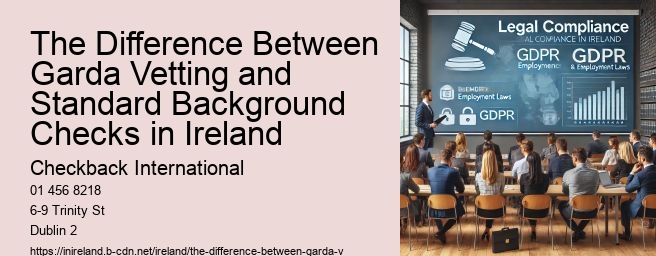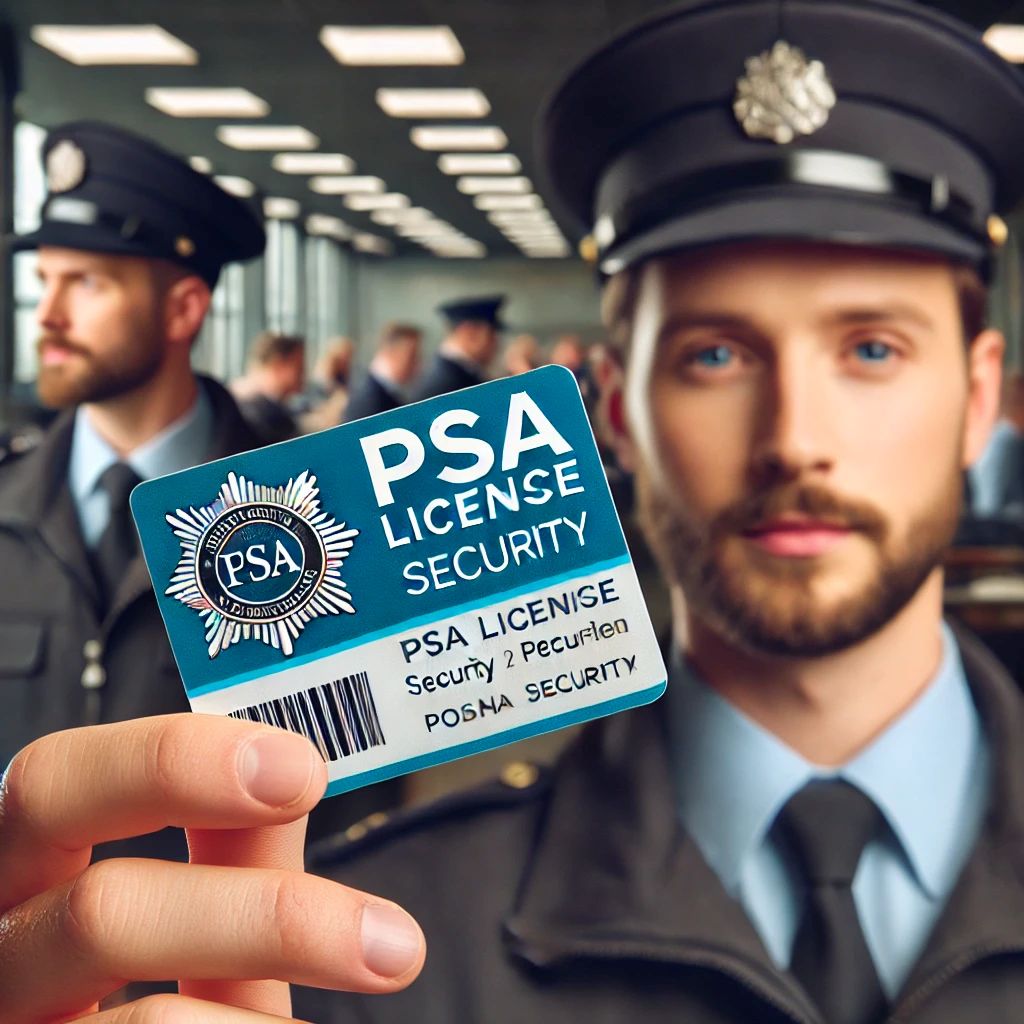

During pre-employment vetting in Ireland, organizations need to know about the European Criminal Record Check (ECRC) system used through Checkback.
Organizations can use multiple screening services, including registered judgments, directorship histories, and bankruptcy reports.
Types of Background Checks Conducted in Ireland Background checks in Ireland include various screening methods to evaluate candidates for specific roles. Bankruptcy and Insolvency Check The screening process reviews employment history and educational qualifications. For positions with high risk, such as those involving vulnerable populations or significant financial responsibilities, criminal record checks must be completed.
2.Financial Institutions: Better vetting helps prevent fraud and keeps customer data safe.
2.Digital Platforms: Use online systems for quick data capturing and verification, reducing manual input and errors.
Through access to multiple criminal records via a single centralized system, the ECRC supports security and compliance standards, helping Irish businesses hire qualified individuals from various EU countries while maintaining thorough background verification.
Due Diligence ServicesCheckback International offers multiple ways to get in touch. The office operates Monday through Friday from 9:00 AM to 6:00 PM.
Pre-employment screening results typically stay valid for 12 months from the date of issue.
How Technology Is Transforming PSA Vetting Processes

1.Standard ECRC reports take 5-10 working days
Many customers highlight quick and professional service delivery. Companies praise how screening checks meet their specific requirements. Reviews mention the high quality and detail of screening reports.
Different sectors need particular vetting procedures, such as anti-fraud checks for Airside Pass applications, consumer credit assessments of bankruptcy and insolvency records, and additional screening for cash-in-transit roles.


These checks help organizations follow industry standards while making hiring decisions.
Medical records stay private between medical providers and patients unless release authorization is given.
Visit checkback.ie for company news, privacy policies, and terms of service. The company maintains active social media channels for updates and communication.
Understanding European Criminal Record Checks
Types of Background Checks Required in Ireland
Employment History and Reference Checks

Criminal Record Verification Process
This process helps with background checks of candidates who have lived in any of the 26 participating EU states. Media Search (Negative Press) The ECRC works well for organizations involved in cross-border tenders, allowing them to check the criminal history of potential employees.
3.Executive Vetting Solutions processes criminal record checks within 5-10 working days, using both domestic and international databases for screening.

A background check in Ireland involves reviewing a person's criminal, financial, or personal records to assess their suitability for a role or position.
The duration can vary but typically takes between 1-2 weeks, depending on the type and complexity of the check.
Garda vetting is a specific type of background check required in Ireland for individuals working with children or vulnerable adults, involving checks against police records.
Yes, you must obtain consent from the individual before conducting any background checks in Ireland.
Not for all employees, but certain sectors such as healthcare and education may require comprehensive checks.
It includes checking for any criminal convictions or offences recorded against the individual.
Yes, individuals can request their own background checks in Ireland for personal review or to prepare for employment screenings.
Skipping background checks can lead to hiring unsuitable candidates, which may result in legal and reputational risks.
Yes, police clearance is a general criminal record check, while Garda vetting is specific to roles involving vulnerable groups and includes more detailed investigations.
You can request transcripts or degrees directly from educational institutions or use third-party services that specialize in educational verifications.
Information about spent convictions, certain types of personal data, and other protected characteristics under GDPR is off-limits unless specifically relevant and lawful to access.
International checks may involve additional complexities such as different laws, languages, and longer processing times.
No, background checks do not affect your credit score as they do not involve a credit inquiry that would impact the score.
Best practices include securing data in compliance with GDPR, limiting access to authorized personnel, and ensuring data is stored for only as long as necessary.
It depends on the industry and role, but typically every 2-3 years or when significant changes occur in the individual’s role or responsibility.
While not specific by law, many IT positions require checks due to access to sensitive or proprietary information.
GDPR regulates the processing of personal data, ensuring that background checks are conducted in a lawful, fair, and transparent manner.
Yes, but it must be done lawfully and with the individual’s consent, considering the relevance to the role.
Penalties can include fines, legal actions, and reputational damage, depending on the severity of the non-compliance.
Remote work has increased the importance of thorough background checks, especially for those in positions of trust or handling sensitive data.
Best practices include conducting similar checks as for permanent staff, especially if they have access to sensitive or critical areas.
Ensuring fairness involves following consistent procedures, obtaining consent, and allowing candidates to dispute inaccuracies.
Yes, it’s recommended to tailor background checks based on the specific risks and requirements of each position.
Signs include transparency about services, compliance with legal standards, positive reviews, and strong data protection practices.
Handling involves assessing the relevance to the job, discussing findings with the candidate, and considering legal and ethical implications.